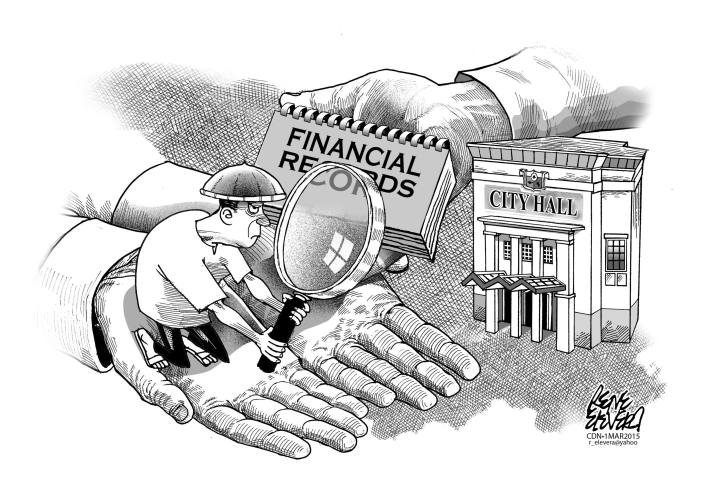
It’s understandable for Cebu City Legal Officer Jerone Castillo to be flustered by the Commission on Audit’s (COA) disclosure of Cebu City Hall’s financial records to the local media.
What is not acceptable is for Castillo to restrict COA from issuing their audit observation memorandum (AOM) to media in favor of them issuing a reply to their audit findings first.
“We’ll not be fault-finders at this point. We just want to correct the system. If it’s confidential in character, tell them first. Give them the opportunity to examine the document… We don’t have an issue on transparency here,” Castillo said.
Wait a minute. Why should COA audit observations be confidential in nature anyway? Aren’t state auditors paid not only to assess the finances of a local government unit (LGU) but also to tell the public how these local officials spend taxpayers’ money?
LGUs should be told of the AOMs of course, but it shouldn’t restrict the COA from releasing them to the media which act as the public’s eyes and ears on government transactions, activities and programs even before informing the LGUs concerned.
In fact, the COA audit findings should be made available to every citizen in order to ensure transparency in government financial activities. Since the Freedom of Information Act has yet to be passed, government agencies and LGUs can get away with pretty much anything and the public isn’t the wiser for it.
Local media outlets usually write the COA for disclosure on an LGU’s financial performance, covering every department and agency and it takes the COA an undetermined period to disclose them. By that time the LGU concerned may have either justified their expenditures or denied everything raised by the COA. The public may either accept their official explanation or suspect something is amiss.
That won’t be the case if they fully learn about the COA’s initial raw reports which are usually more honest and less calibrated than if they are made to undergo those so-called “exit conferences.”
In that case, the public has the right to know about these initial findings rather than accept every LGUs’ explanation hook, line and sinker. These are public documents and the public has the right to access these documents.
That doesn’t deprive the LGU concerned the opportunity to explain their performance and expenditures. Transparency doesn’t have to restrict the LGUs in going about the business of governance and if these LGUs fear that their fiscal performance would provide ammunition to their political opponents and critics, then they should be more circumspect and responsible in handling public finances in order to stand up to the harsh, unforgiving light of public scrutiny.